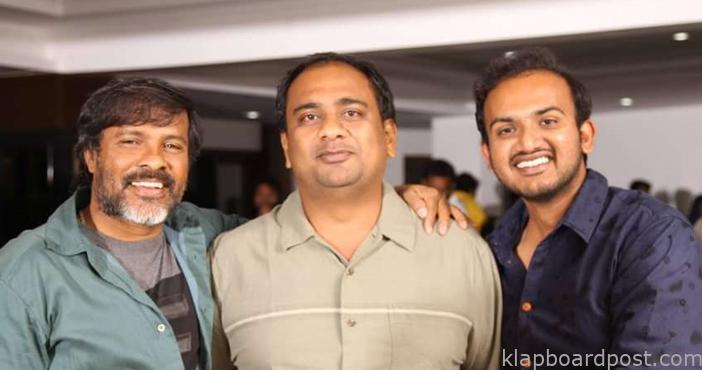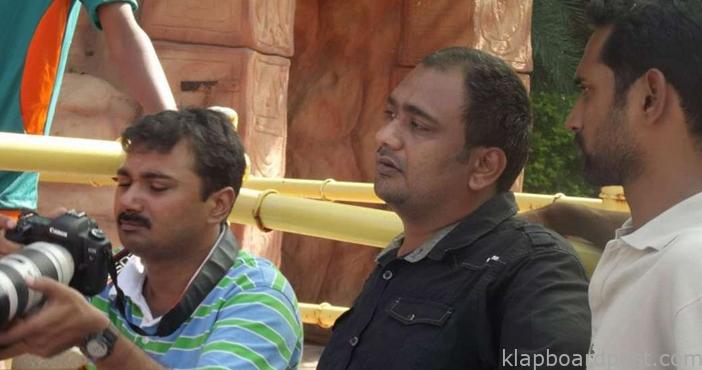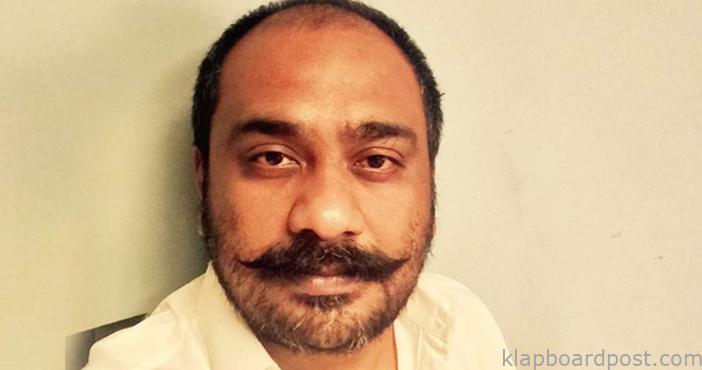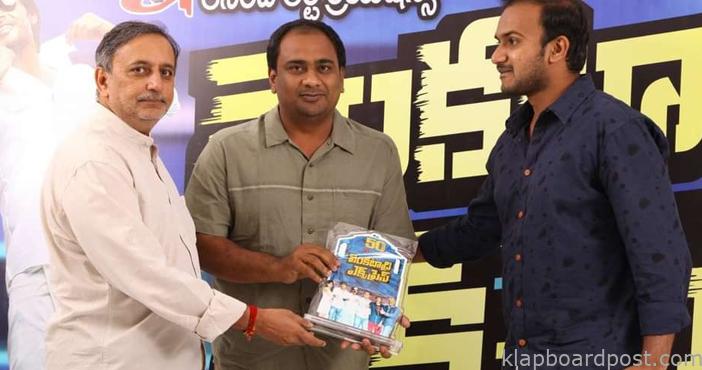Sheik Dawood has been here since 2010. Krishna Vamsi’s Mogudu brought him to the city and he was assigned the job of writing the entire humour portion of the film. The director was so impressed with his work and he eventually wrote for the full film. In a chat with Y.Sunita Chowdhary of Klapboardpost.com, he discusses the challenges in whipping up a near perfect script. Is comedy your forte, which is why you’ve been asked to write the particular portion? “I have never written comedy in particular. I have been told it is an emotional film and they haven’t been able to elicit proper humour when needed. It was my first film in Telugu. Usually in films, writers don’t write separate tracks but occasionally when the required mood is not felt, they rope in a second writer. I have been individually working on projects in English and Tamil. In the process, I learnt Telugu, I can correct and connect but to write a Telugu dialogue is a task as there is a slang that is required and we need to know the in -thing that is spoken in the society. My main job is to write a story or screenplay or only screenplay. Sometimes I am just a script consultant. Overall it is a joyful process, writing and collaborating is a lovely experience. The betterment wherever it comes from, from whomsoever it comes from is welcomed here. For most of my films, the director has been the dialogue writer, especially Merlpaka Gandhi.”

Is it necessary to like the story to work in it? “For me, any story is a good story. Some call a story a bad one, I think their approach would have been wrong which is why it was a bad story. Whenever a script comes to me I don’t discriminate between bad and good stories. I come from a teaching background. I was teaching screenplay at LV Prasad’s in Chennai. My major job was to analyse what students did. Half of the day, whatever project we got, we would analyze and suggest, improvise in the teaching dept. Also, whenever someone narrates, I tell them what the issue is and make them understand. The rapport between people and me is very important. I don’t convinced, I try to tell them that this is the issue, identify it and a solution can be reached later. Once you finish off issues, writing comes easily.”

Ask Dawood, the challenges he noticed with the Telugu scripts he had come across in particular and he quips, “The major problem is the second half of the story. Ninety percent of the first half would be okay. How do we solve the second half? The first one is about conflict. The audience goes to the cinema to find a solution for the problem and we need to give a satisfying solution. Are you happy with it? The second half usually slides and everytime the same problem arises. It is also lengthy…I make sure the work is original and also ensure that the same story can be approached in a different way. This originality comes in scenes and characters, explaining this becomes a tedious issue. It is a matter of perception and I always wonder how it works in the theatre. I am the easiest audience in the world to cheat, if I like the film, it means it works in the box office. Most of the time, when I reach and read the mid of the second half, I know if it will work out or not.”

Dawood says that some scripts take three years to get a complete shape. He had been collaborating with director Nandini Reddy before On Baby for a project and the script is now good to go and they are completely happy with it. He shares, “Each case is different. We have been writing and rewriting and a lot has been changed. It has been a different journey. Ek Mini Katha was written in three weeks. There is no time frame as such, it is spontaneous and it is about how well versed you are with the subject. When Merlpaka Gandhi told me the story, I got connected very well. I went through a Canadian stand up comedy. The first thing that came to my mind is that it shouldn’t look awkward and make people uncomfy and that was what we decided collectively. We told ourselves that it will not sound offensive and profane and that the protagonist will not be made fun of; it is the situational humour that will play up and we have defined certain limits for ourselves. This is a humble character and everyone can relate to it. Even if people had a problem or not, they would have seen it with friends and discussed it. When you went and saw, you realised there is no abusive language. By word of mouth, it spread and even families saw it. People are openly talking about it and there are no qualms. It went to the platform where people could see comfortably. I must say it came at the right time. Right now I think it is a very democratic set up in cinema and there are platforms to encourage your thoughts and help it reach the audience.”

The writer likes comedy, thrillers etc but appreciates all genres. He says the perception of a person is based on the upbringing, growth and the influences one has had. Content evolution happens everywhere. He adds, “Right now I might like something which is why it is coming. Evolution comes from society. There is no film on sucide these days, so we stopped glorifying it. We have films ‘against’ honour killing.” Do writers dump scripts after watching world cinema on OTT platforms? “Sometimes it happens. I have a script ready, it has been there for so many years. Later I reworked on it and it became better. It is like a human being, give it life and you never know when it springs. Sometimes we finish fast, sometimes slow.” The writer had worked on Venkatadri Express, Tikka, Maestro and now a film being directed by Sanjeev. He is also in a Hindi film that is in production. Dawood signs off encouraging the young, fresh talent to explore opportunities as the time is ripe. “Things are opening up since the day Youtube and OTT surfaced, anyone can pick up a camera and make a film, it has become democratic. You have the possibility to make and sell a film by sitting in some random place. Look at Cinema Bandi. It is a good example of concept making and marketing. Whether a film is good or bad, people will decide but what matters is – is it reaching the audience? The possibilities have become easy.”













